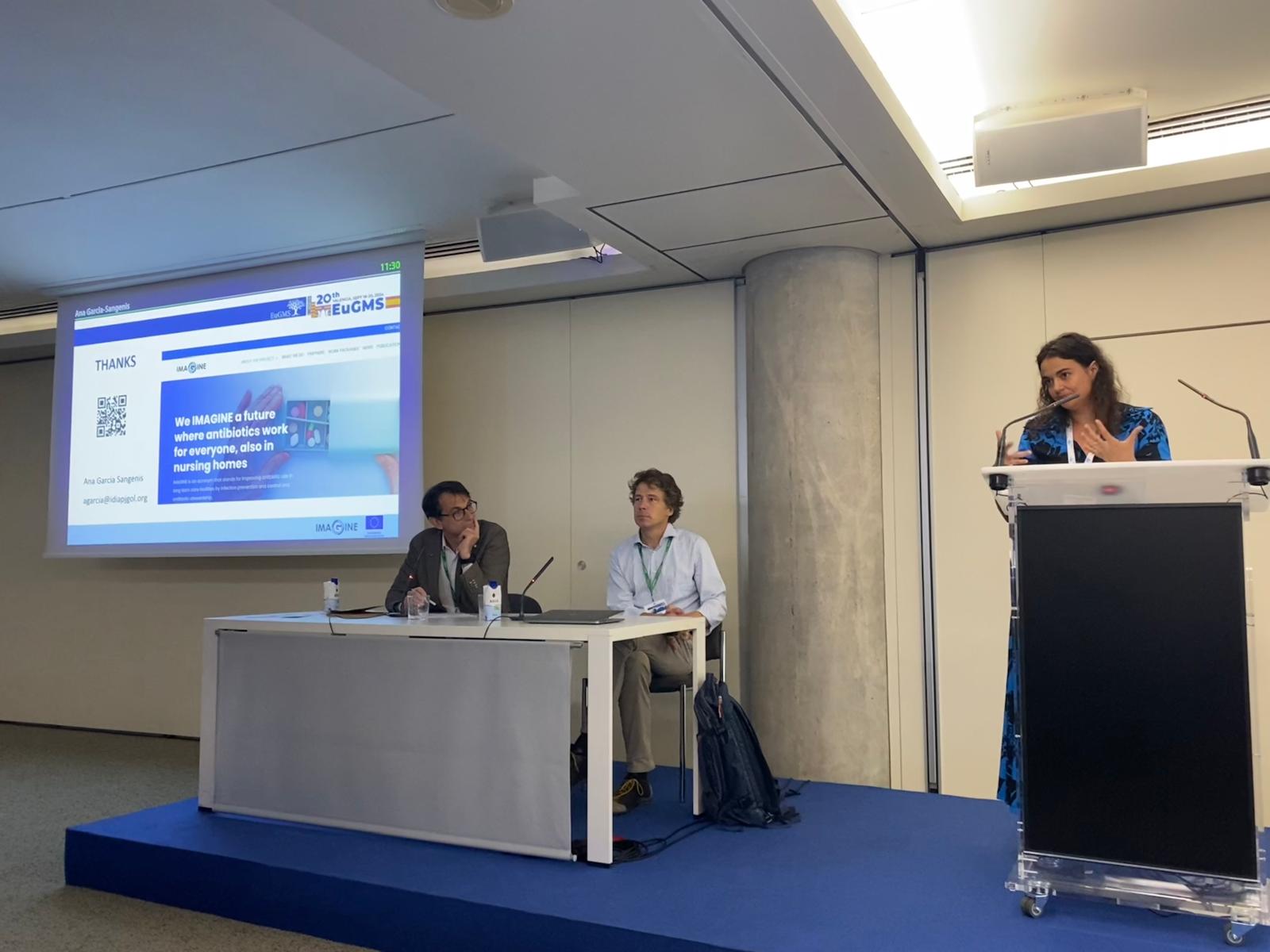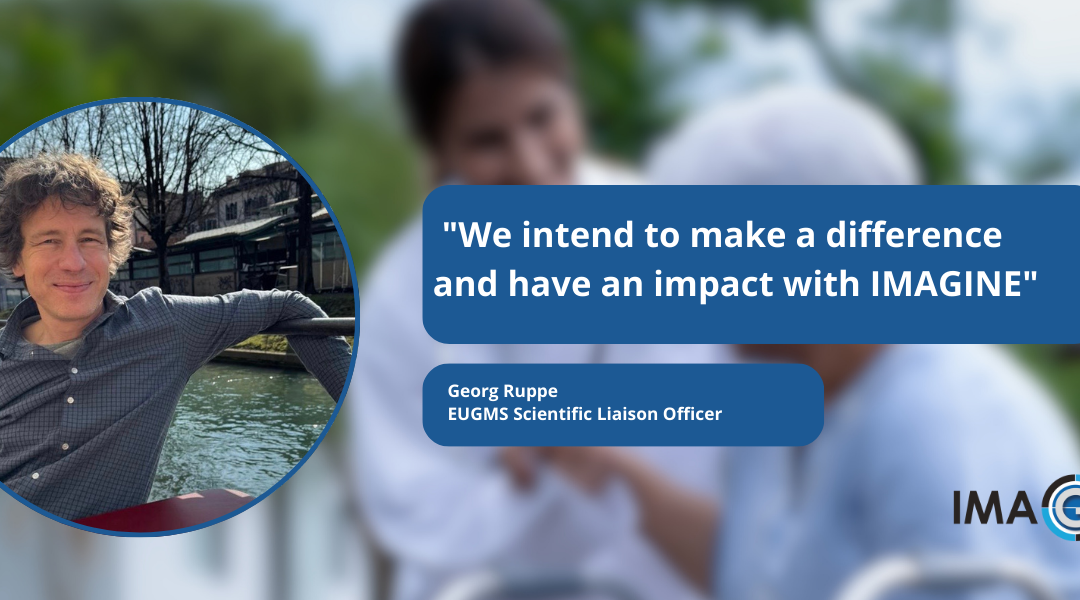In the rapidly evolving field of geriatric medicine, the need for effective collaboration and innovation has never been more critical. Today, we have talked to Georg Ruppe, the Scientific Liaison Officer with the European Union Geriatric Medicine Society (EUGMS). With a wealth of experience in geriatric care and a passion for improving the quality of life for older adults, Georg plays a pivotal role in bridging research and practice across Europe.
In this interview, we will explore EUGMS’s mission, its involvement in key projects such as IMAGINE, and the ongoing efforts to enhance the standard of care for geriatric patients.
Who is EuGMS and what is the mission of EuGMS as an organization?
The European Geriatric Medicine Society, in short EuGMS, is the collaborating and co-ordinating organisation of the national geriatric medical societies across Europe and as such EuGMS represents the largest umbrella organization for geriatrics and gerontology in Europe. It was founded in 2001, is registered in Brussels and has as a core objective to foster Geriatric Medicine in the European region as an independent specialty caring for all older people with age-related diseases and to promote education and continuing professional development.
EUGMS fosters scientific exchange in form of international workshops, task-and-finish groups as well as special interest groups. EUGMS is involved in the development, validation and dissemination of international clinical guidelines and it also hosts a growing annual congress bringing together clinicians, scientists and stakeholders from all over Europe.
When did the European Geriatric Medicine Society become involved in the IMAGINE project?
EuGMS is a partner of the IMAGINE project under the EU4Health program since the proposal phase and thus, full partner of the consortium since the kick-off meeting of the project in January 2023
What was the main motivation for participating in a project focused on the appropriate use of antibiotics in nursing homes?
Geriatric patients – suffering from frailty, multi-morbidity and/ or complex chronic conditions – are often receiving several medications at the same time. Often more than 5 different drugs, then we speak about polypharmacy in geriatrics.
Prescription patterns and de-prescribing, the use of appropriate drugs and combinations of drugs among this vulnerable group of patients is an issue of high relevance in geriatric medicine and obviously also includes the careful and responsible use of antibiotics, in order to avoid unnecessary drug interactions, unpleasant side-effects for alder patients as well as the development of antimicrobial resistance against this important group of drugs.
Additionally, urinary-tract infections are frequently seen among geriatric patients and the right way of diagnosing and deciding for an appropriate treatment is a daily issue in geriatric medicine – not only within nursing homes, but also in other health-care settings, particularly in hospital wards, but also in home dwelling geriatric patients.
This is why EuGMS has appreciated and supported the initiative of IMAGINE from the very beginning and has become partner of this project with great pleasure.

Can you describe your role and activities as a partner within the IMAGINE project?
EuGMS is part of the WP on dissemination and communication within the IMAGINE consortium. Thus, where we can, we support, of course, the lead partner of this WP, SEMFYC, in all related activities.
However, our specific role in IMAGINE, beside this, is to bring in expertise from geriatric medicine, to provide a kind of bridge and foster the communication and dissemination in different forms to geriatric specialists and geriatric practise across European – beyond the involved partner- and target-counties of IMAGINE. And we also intend to establish some links and collaborative activities with other European funded projects and scientific initiatives working on overlapping or even similar fields of research.
Can you give us some examples of how the role and intentions that you just described could be realized within a project like IMAGINE?
An important tool and setting for realising these intentions is the well recognised annual Congress of EuGMS, where we have the possibility to reach out to a broad and international audience including geriatric specialists, researchers and health care professionals from all different settings and countries. This setting allows and allowed already to present IMAGINE in form of oral and poster contributions, including symposia dedicated to EU projects working in related fields of research as IMAGINE.
It allows to present the project objectives and results to EuGMS boards and the already mentioned “Special Interest Groups” – Special Interest Groups in EuGMS are groups of international scientists focusing on one specific topic of interest, such as Pharmacology or Infectious Diseases – and, last but not least, we also can offer the opportunity during the Congress to distribute IMAGINE dissemination materials, such as flyers, or to show video presentations about the project.
All this we did a first time during the EuGMS Congress in Helsinki in autumn 2023 and just recently at the last EuGMS congress in Valencia in Spain, which was very successful, not only in terms of new record-numbers of Congress participants, but it also showed a remarkable interest for our IMAGINE oral/poster & video presentations and we got a lot of respective feedback, including interest for further exchange and collaboration from other international projects and researchers.
Is there a specific initiative or collaboration with the possibility for dissemination and exploitation for IMAGINE that you could already think of at this stage of the project?
One specific project, for example, that lends itself for future collaboration and for disseminating training tools in geriatric health and nursing care is the PROGRAMMING project, a so called COST action coordinated by EuGMS that intends to foster knowledge transfer in Geriatric Medicine and to provide respective training and education tools in countries where Geriatrics is still not very much developed.
Thus, webinars and training tools that IMAGINE has developed are definitely of interest for this initiative and would help to disseminate and spread the word of IMAGINE and to create an impact of this project also in other European countries.
But I think that generally for all healthcare settings dealing with and caring for geriatric patients, the results and the developed interventions of IMAGINE would be of high interest. Thus, we should seek for respective collaborations or follow-up activities together with IMAGINE – building up on what IMAGINE could and still will achieve in the second half of the project.
This means that for the coming months we plan to further intensify our endeavours in establishing promising links to the daily practice of Geriatric Health & Care as well as to individual researchers and experts from other projects, countries and professional backgrounds.
In summary, we really want to make a difference and an impact with IMAGINE!
And – at the latest – we hope to see many of you at the next EuGMS Congress in autumn 2025, this time in Rekjawik, in Island.

